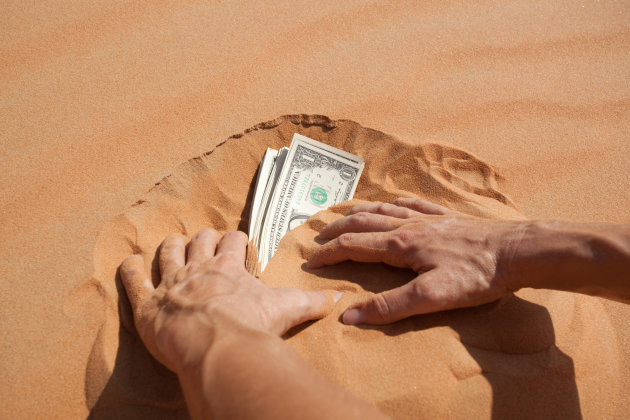
When bank accounts, insurance payouts, pensions or other property go dormant, companies are required to contact the owner at the last known address and, if unsuccessful in reaching the person, turn the property or money over to the state's unclaimed property program. The National Association of Unclaimed Property Administrators estimates that $41.7 billion in unclaimed property sits waiting to be reclaimed.
Many consumers have no idea they could have money waiting for them. Most states have a ratio between 1 in 6 or 1 in 10 people who have unclaimed property, according to Carolyn Atkinson, deputy treasurer for unclaimed property in West Virginia and a past president of the National Association of Unclaimed Property Administrators. That's why she encourages consumers to check state online databases, even if they're doubtful that they've let anything go unclaimed. To check, go to Unclaimed.org and click on each state you've lived in to check for money that is due to you. The majority of states also partner with MissingMoney.com, a combined database of those states.
The rules on unclaimed property vary by state and depend on the type of property. It often takes three to five years of dormancy for an account to be considered unclaimed. Many states have a Nov. 1 deadline each year for businesses to remit unclaimed property to the state. Typically, the claims process involves submitting a form proving you are the rightful owner or heir of the unclaimed property.
Depending on the type of unclaimed property and the amount, you could receive a check as soon as 30 days after filing a claim form. In Connecticut, for instance, it should take no longer than 90 days to be reunited with your property, according to Connecticut Treasurer Denise Nappier.
There is no fee to file a claim for unclaimed property. However, finder companies offer to reunite heirs or owners with unclaimed property for a fee. In many cases, this is unnecessary because you can file a claim yourself. "For the average person, you shouldn't pay anyone to do that for you," Paolillo says. "There are corporations that are very complex in nature, and it gets a little bit more complicated, so some firms assist in filing claims and doing the research on their behalf."
Atkinson also advises against using a for-profit finder company. "The ones that are more nefarious are the ones that actually defraud people of their money," she says. Stick with legitimate websites like Unclaimed.org and MissingMoney.com because some private locator sites aren't as reputable. "At least every other week we hear about some supposed locator that is actually a scam or fraud," Atkinson says.
In many cases, property can be reclaimed in perpetuity, even by heirs, but once property is liquidated, the value won't increase. "If it's not an asset that is accruing interest, then you're losing money on the value of those assets," Nappier says. "Connecticut law states that some assets do accrue interest, but if you had some expensive artwork and then it was liquidated, the value stops there."
While reclaiming a forgotten bank account or uncashed dividend check may feel like getting a windfall, keeping track of accounts ensures that you won't have to file a claim in the first place. For your own sake and the sake of your heirs, Nappier suggests keeping an inventory of all your assets. "You need to be sure to properly cash all checks for dividends, wages and insurance settlements," she says. "If you stop receiving dividends, contact the company immediately."
Also stay in contact with your bank and other financial institutions to prevent dormancy. Making an online inquiry to your bank or investment accounts may count as a contact. "If you register, log into your account and see what your balance is that would prevent that from being unclaimed," Atkinson says. "If we can get the property back to the owner before it comes to the state, we consider that a success."

No comments:
Post a Comment